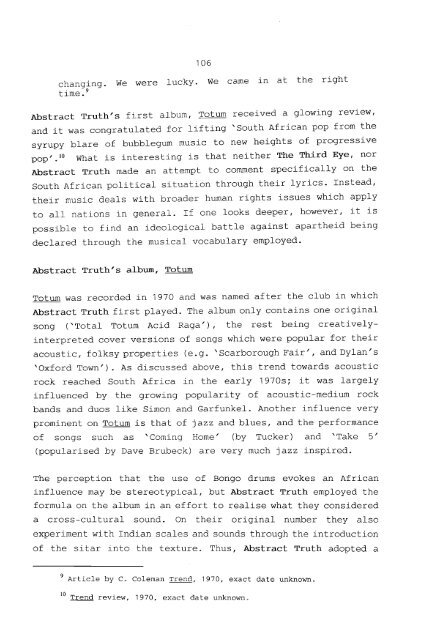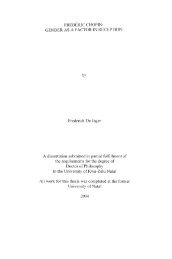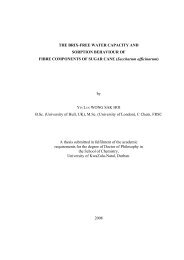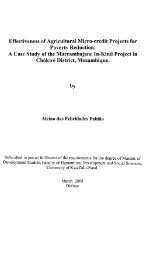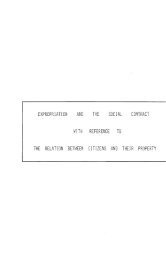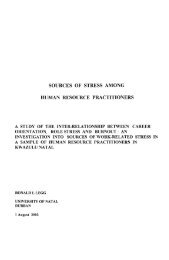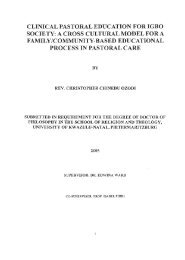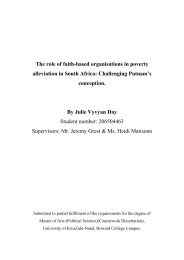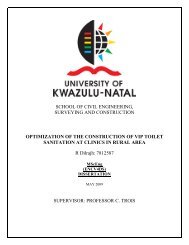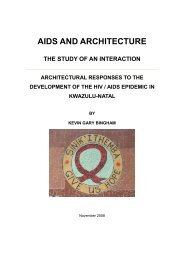FROM ROCK 'N 'ROLL TO HARD CORE PUNK - UKZN ...
FROM ROCK 'N 'ROLL TO HARD CORE PUNK - UKZN ...
FROM ROCK 'N 'ROLL TO HARD CORE PUNK - UKZN ...
Create successful ePaper yourself
Turn your PDF publications into a flip-book with our unique Google optimized e-Paper software.
106<br />
changing. We were lucky. We came in at the right<br />
time. 9<br />
Abstract Truth's first album, Totum received a glowing review,<br />
and it was congratulated for lifting 'South African pop from the<br />
syrupy blare of bubblegum music to new heights of progressive<br />
pop' .10 What is interesting is that neither The Third Eye, nor<br />
Abstract Truth made an attempt to comment specifically on the<br />
South African political situation through their lyrics. Instead,<br />
their music deals with broader human rights issues which apply<br />
to all nations in general. If one looks deeper, however, it is<br />
possible to find an ideological battle against apartheid being<br />
declared through the musical vocabulary employed.<br />
Abstract Truth's album, Totum<br />
Totum was recorded in 1970 and was named after the club in which<br />
Abstract Truth first played. The album only contains one original<br />
song ( 'Total Totum Acid Raga'), the rest being creatively<br />
interpreted cover versions of songs which were popular for their<br />
acoustic, folksy properties (e. g. 'Scarborough Fair', and Dylan' s<br />
'Oxford Town'). As discussed above, this trend towards acoustic<br />
rock reached South Africa in the early 1970s; it was largely<br />
influenced by the growing popularity of acoustic-medium rock<br />
bands and duos like Simon and Garfunkel. Another influence very<br />
prominent on Totum is that of jazz and blues, and the performance<br />
of songs such as ' Coming Home' (by Tucker) and 'Take 5'<br />
(popularised by Dave Brubeck) are very much jazz inspired.<br />
The perception that the use of Bongo drums evokes an African<br />
influence may be stereotypical, but Abstract Truth employed the<br />
formula on the album in an effort to realise what they considered<br />
a cross-cultural sound. On their original number they also<br />
experiment with Indian scales and sounds through the introduction<br />
of the sitar into the texture. Thus, Abstract Truth adopted a<br />
9 Article by C. Coleman Trend, 1970, exact date unknown.<br />
10 Trend review, 1970, exact date unknown.


